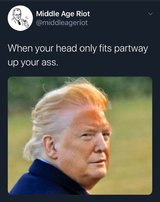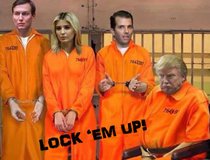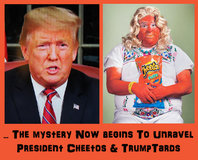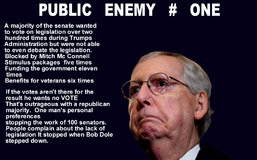Trump’s Antics Strengthen the Case for Nationalizing Election Rules
A lot of us look at the efforts of President Trump and his supporters to contest his 2020 election defeat and see a vivid reflection of the weaknesses of our ramshackle, insanely decentralized system, which creates a thousand potential openings for legal and political mischief. But the University of Rochester’s Steven E. Landsburg looks at the same set of facts and thanks the heavens our way of running elections is too screwed up to be dominated by a tyrant, as he explained in a
Wall Street Journal op-ed published Wednesday:
Imagine a future presidential election in which the incumbent refuses to concede and enlists the full power of the federal government to overturn the apparent democratic outcome.
Now imagine that the election in question is actually run by a federal agency or by some nationwide quasigovernmental authority charged with collecting and aggregating the results from all 50 states.
I don’t know about you, but I might worry a bit about the pressure that could be brought to bear on that single authority. I might worry a bit about the objectivity of the attorney general and the federal election commissioners who would be in a position to ramp up that pressure.
Landsburg abruptly shifts to a backhanded defense of the Electoral College, without any real explanation of why that hoary institution is a curb on tyrants. But the question of how we decide who has won a presidential election and the rules and resources shaping how it is run are two very separate issues.
As I
argued earlier this year, what we most need is
uniform national standards for voter registration, different types of voting, and the processing, counting, and reporting of ballots; a
national policy establishing voting as a federally recognized right with strong legal backing; and
robust federal funding to address patent inefficiencies and disparities in how elections are held across the country. Such reforms could also include a cleanup of the
chaotic processes for determining and litigating Electoral College votes — another
dysfunctional area of current law that Trump is
trying to exploit. Yes, election-law expert Rick Hasen has carefully
laid out a system for managing and financing federal elections via a federally created agency or board. But you can have national standards, a national right to vote, and national funding with or without centralized administration.
It’s a sad day if our only choice is either to rely on a disorganized and fundamentally unequal nonsystem of state and locally controlled elections — or succumb to tyranny. Sure, scofflaws like Donald Trump will try to exploit any concentration of power in his vicinity to frustrate or even pervert rational national policies and the overall constitutional design. But there are other ways to rein in outlaw presidents that don’t involve paralyzing the federal government or freezing interstate inequities forever. Let this year’s messy, divisive, and ultimately contested elections provide an urgent impetus to long-overdue reform of how we go about exercising the most fundamental of democratic functions. Otherwise we are in danger of making election administration a partisan football in all 50 states forever.






